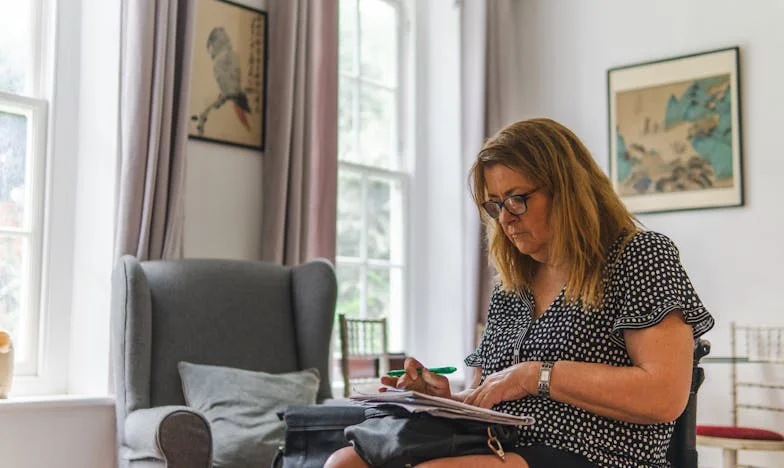Cast Out by My Own Blood: A Father’s Reckoning on a Park Bench
“You don’t have to go, Dad. Please, just—just give us some time to figure this out.” My son’s voice trembled, but his eyes darted away from mine, searching for the courage he’d lost. I stood in the doorway, clutching my faded duffel bag—just a few shirts, my old electric company jacket, and the photo of my late wife, Mary. Behind him, Emily stood rigid, arms crossed, lips pressed in a thin line that brooked no argument.
“I’m sorry, Dad. We need our space now. You… you understand, right?” Emily’s voice was cool, rehearsed, almost clinical. I wanted to argue, to remind them that this was my home too, that I’d helped them pay the mortgage when they were starting out. But I saw it in her eyes—there was no room for me here anymore. Not since my retirement, when I became, as she put it, “dead weight.”
The door shut with a click that echoed louder than any fight we’d ever had. I stood on the porch, stunned. The November wind cut through my coat. My son, Michael, didn’t even look up as I walked away.
Three months later, I sat on a cold metal bench in Lincoln Park, Chicago. The city had always seemed so alive to me, even after Mary passed away. But now it felt indifferent—cars rushed by, people hurried past, not sparing a glance for an old man hugging himself for warmth. My hands shook as I sipped coffee that a kind stranger bought me. I still wore my electric company jacket, the one with the faded “Henry” patch. It was all I had left of the life I once lived.
I replayed that night over and over: Emily’s ultimatum, Michael’s silence. My grandson, Ethan, just seven, hiding behind the living room door, peeking out with wide, confused eyes. Did he think I abandoned him? Did Michael tell him the truth? The bitterness welled up inside me. I wanted to hate Emily, blame her for poisoning my son against me, but at some point, I had to admit—maybe Michael was waiting for a reason to let me go.
Every Tuesday, I went to the park. It was the only place I still felt visible, even if just to the squirrels and pigeons. One afternoon, a little blonde boy raced by, chasing after a soccer ball. He stumbled, nearly falling into my lap. Instinctively, I caught him, steadying him by the shoulders.
“Careful, kiddo,” I said, my voice raspy. The boy looked up at me, blue eyes wide with surprise, then recognition. “Grandpa?”
I froze. It was Ethan. He glanced over his shoulder—there was Michael, jogging behind him, calling his name. For a moment, none of us moved. Michael’s face went pale when he recognized me.
“Dad? What are you—what are you doing here?” His voice was a mixture of disbelief and shame. Ethan wrapped his arms around my neck. “Why don’t you come home? Mom says you don’t want us anymore.”
I swallowed hard. “That’s not true, buddy. I miss you every day. Sometimes grown-ups make mistakes… big mistakes.”
Michael knelt down, rubbing the back of his neck. He looked older, tired. “I didn’t know you were… out here. Why didn’t you call?”
I laughed, bitter. “And say what? That your old man can’t take care of himself? That he’s living on park benches and soup kitchens? I thought I’d just… disappear. Easier for everyone.”
Ethan tugged at Michael’s sleeve. “Can Grandpa come home? Please?”
Michael glanced away, tears in his eyes. “I’m sorry, Dad. I should never have let this happen. Emily… she was scared. She thought you were in the way, but I—she doesn’t get to decide everything. You’re my father. Ethan’s grandpa.”
For a long moment, I said nothing. Pride, anger, grief—they all tangled up inside me. Finally, I sighed. “It’s not just about a place to sleep, Mike. We have to talk. All of us. About what family means.”
We walked back together, Ethan skipping ahead, chattering about school and the new puppy I’d never met. At the apartment, Emily stood at the window, watching us approach. Her face was unreadable, but when Ethan hugged me and ran inside, she didn’t stop him. She met me at the door, arms folded, eyes red from crying.
“I never wanted… this,” she whispered. “I just… needed space. I thought it would be better.”
“Better for who?” I asked. Silence stretched between us. Michael stepped in, hand on my shoulder. “We’re doing this together. All of us.”
That night, we sat around the kitchen table—the same table where Mary and I once played cards, where I helped Michael with homework. We talked for hours, voices raised, tears shed, but for the first time, we listened. Emily apologized—truly apologized—for pushing me out. Michael promised to never let it happen again. I forgave them, though I knew it would take time for my heart to catch up.
Even now, months later, as we build new routines and boundaries, the scars remain. Sometimes, I still wake in the night, fearing I’ll be cast out again. But Ethan’s laughter, Michael’s efforts, Emily’s hesitant kindness—they remind me that family is worth fighting for, even when it nearly breaks you.
Sometimes I wonder—how many other fathers are out there, invisible, waiting for a second chance? What would you do if the people you loved most turned you away? Would you forgive them, or walk away forever?
